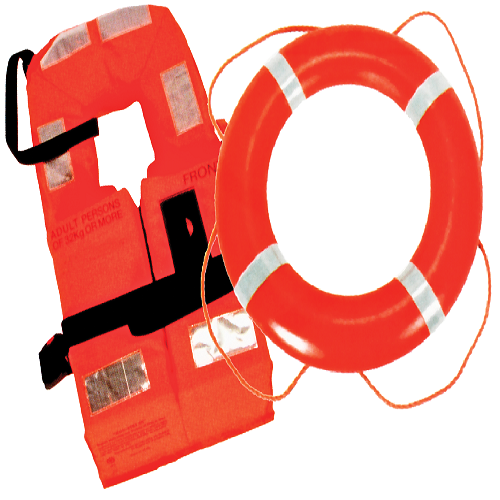
Life Saving Equipments Inspection Service Details:
1. Weekly Checks (By Ship's Crew)
A. Lifeboats and Rescue Boats:
·
Visually inspect each
craft and its launching appliance to ensure they are ready for use.
·
Run the lifeboat and
rescue boat engines for at least 3 minutes, ensuring the gearbox engaged and
operating in both forward and reverse, provided the ambient temperature is
suitable.
·
Lifebuoys and Life
Jackets: Visually inspect to ensure they are in their correct locations,are
in good condition, and are clearly marked.
·
General Alarms: Test
the general emergency alarm and public address system.
·
SCBA and EEBD: Check
the pressure gauges on all cylinders to ensure they are within the acceptable
range and the tamper seals are intact.
2. Monthly Checks (By Ship's Crew)
Lifeboats:
·
A more detailed
inspection using a checklist from the manufacturer's maintenance manual.
·
Engines are run for a
longer duration, and batteries are checked.
·
Inflatable Liferafts and
Life Jackets: Visually inspect the condition of their containers or bags
and their storage arrangements.
·
SARTs and EPIRBs: Test
their functionality (without full activation) as per the manufacturer's
instructions.
·
Falls and Wires: Visually
inspect the falls (ropes or wires) used for launching and recovering survival
craft, paying special attention to areas passing through sheaves.
3. Annual Service (By Authorized Service Provider)
This is a comprehensive, professional inspection required
for the renewal of the vessel's Safety Equipment Certificate.
·
Inflatable Liferafts,
Life Jackets, and Marine Evacuation Systems (MES):
o
These items must be
serviced at an approved service station every 12 months.
o
The service includes a
thorough inspection, leak testing (for inflatable items), and replacement of
any dated components or rations inside the raft's emergency pack.
·
Lifeboats and Rescue
Boats:
o
A thorough examination
of the entire craft and its equipment.
o
Operational testing of
the on-load release gear. This may involve a test with the boat lowered to the
water level but not fully released, or a simulation of the release mechanism.
·
Launching Appliances
(Davits, Winches, and Falls):
o
A thorough inspection of
all components, including the winch brake mechanism, remote controls, and power
supply.
o
The fall wires must be
visually inspected and renewed as necessary or at intervals of no more than 5
years.
·
Hydrostatic Release
Units (HRUs): These devices automatically release a liferaft when
submerged. They must be serviced or replaced annually.
·
Pyrotechnics: Flares
and smoke signals are inspected, and those past their expiration date are
replaced.